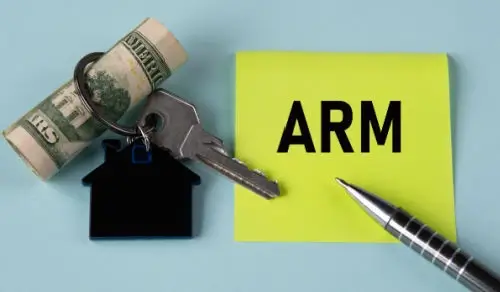

In today’s real estate market with rising interest rates and high home prices, potential homebuyers are looking in every direction for ways to make home ownership more affordable. One option might be to utilize an adjustable-rate mortgage loan. These offer lower introductory interest rates and mortgage payments. Here are some of the most frequently asked questions about ARM loans to help you figure out if they are right for you.
-
How is an ARM different from a fixed-rate mortgage?
The difference is in the name: an adjustable-rate mortgage has an interest rate that can vary over time while the rate on a fixed-rate mortgage never changes over the course of the loan. -
How does an ARM loan work?
The loan will have a low interest rate for a specific amount of time. For example, one of the most popular ARM products, the 5/1 ARM, will keep the low rate for the first five years of the loan, after which it can adjust once a year for the rest of the term. -
How is the interest rate calculated?
Once the interest rate starts adjusting, it will be tied to a benchmark market index. The exact index will be listed in the loan documents. The lender will then add a fixed percentage, called the margin, to the index rate to calculate your loan rate. -
When will my rate change?
The first time it can change will be after your initial loan period. The most common are five, seven, or ten years. Thereafter most ARM rates adjust once a year or every six months. Make sure you are clear on your loan’s specific terms before signing. -
How much will it change?
There is a limit, called the periodic cap, on how much any ARM interest rate can change in any one adjustment period. There is also a limit, called the lifetime cap, on the total percentage it can rise during the entire loan. Both limits will be spelled out for you at your loan closing and in your paperwork. It is a good idea to make sure you can afford the payments even at the highest rate. -
Can I refinance an ARM loan?
There may come a time when you want to switch from an ARM to a fixed-rate mortgage. Many borrowers want to avoid paying the higher variable rates. You can do this by refinancing into a different loan before your introductory rate period ends. You will just need to have good enough credit and enough income to afford the payments with a fixed-rate mortgage.
While it is important to understand the details of adjustable rate mortgages, they can be very helpful for first-time buyers trying to break into an expensive housing market or for those with less than perfect credit. They can also be a great way to save money when you don’t plan to stay in the home for more than a few years.
These materials are not from HUD or FHA and were not approved by HUD or a government agency
